"We’re using criminal justice mechanisms to deal with what should be an administrative process."
Jona Zyfi’s life has so far been an “adventurous story” full of fear, hope, resilience and relief.
At age seven, Zyfi was smuggled into Australia under a false name as a child refugee claimant. At 16, after a forced return to her native Albania, she emigrated to Canada carrying only a suitcase and teddy bear.
Now a PhD candidate at the University of Toronto’s Centre for Criminology & Sociolegal Studies, Zyfi is examining how public policy shapes the plight of asylum seekers and migrants in Canada. Her work is shedding valuable light on some of the little-known – and sometimes shocking – injustices faced by refugee claimants in a country widely thought to be among the most welcoming and multicultural in the world.
“The work that I do is very much informed by my lived experiences,” she says. “It’s where I find the strength to do it.”
Why is Zyfi examining the refugee experience through the lens of criminology and not political science?
“Lots of people have asked me that,” she says. “Even I had moments when I’d wonder, ‘Am I in the right department?’ But the deeper I go into my research, the more confirmation I get that I am doing the right thing.”
This is due to the phenomenon of “crimmigration,” a term that’s used to describe how refugee claimants are often subjected to processes normally associated with the criminal justice system.
“Immigration is an administrative field, while the criminal justice system is a lot more heavy-handed,” Zyfi explains. “And yet, we’re using criminal justice mechanisms to deal with what should be an administrative process. That doesn’t make sense.”
In some ways, she says, Canada’s approach to refugees is a good news story.
In the last decade, for example, the country has welcomed more than 40,000 Syrian refugees, and has been in the vanguard of acceptance for those fleeing persecution on the basis of gender identity and sexual orientation.
But there is darker side, too. Many Canadians are unaware that children can be held in detention with or without their parents and that adult asylum seekers who can’t be accommodated in holding centres have been detained in provincial jails alongside those serving criminal sentences.
Canada is also one of the few countries in the Global North where there is no legal limit on detention, meaning that claimants can spend years in jails or holding centres before their cases are heard.
“They rarely get access to legal aid and many of them can’t speak the language,” Zyfi says. “So they don’t even understand what’s happening. They’re unaware of their rights and terrified of being deported.”
Zyfi says she is particularly interested in the role technology plays in immigration and asylum processes and application assessment procedures. In an effort to reduce dependence on migrant detention, some asylum seekers are now granted temporary freedom but monitored in ways that are highly controversial.
These methods include the use of electronic ankle monitors as well as voice reporting via cellphone – both of which can fail if batteries or cell reception run out. Facial recognition software is also gaining in popularity.
But even a small technical mistake, Zyfi argues, can place a claimant’s life in danger. “There’s this idea that technology is going to solve all our problems,” says Zyfi. “It’s going to make faster decisions, better decisions. The decisions are faster, but that doesn’t always mean that they are better.”
Zyfi’s concern about the rights of asylum seekers is born from her own experiences.
Born shortly after the fall of communism in Albania, her early life was spent amid the anarchy and civil insurrection that followed the collapse of the country’s economy. “We had to hide under the tables, because bullets could fly through at any minute,” she recalls. “One flew through our balcony window. The arms depots were open; anybody could get bullets, a grocery bag full of grenades, whatever they could find. It was a free-for-all.”
Using a false name, Zyfi made her way to Australia with her mother and sister via a human smuggling network. But the family was expelled from Australia in 2005 when Albania was deemed to be a safe country of origin. “I remember my mother packing up our entire life in a shipping container,” she says.
Four years later, Zyfi came to Canada and two years ago, after a lengthy series of applications and various immigration statuses, she was finally granted citizenship.
Now, she is firmly committed to making life better for other migrants and refugees, including by giving them a bigger say in decisions that affect them. In policymaking, “our stories are not being incorporated in a meaningful way,” she says. “To me, that is the saddest part.”
The groundswell of private support for Syrian refugees – Zyfi herself was an enthusiastic sponsor – shows that caring for survivors of global crisis is a Canadian value. But she says that civil society alone cannot provide the support needed, and the government can do more – not only for immigrants deemed to be economically desirable, but for those whose lives are in jeopardy.
“Historically, immigration has been key to the Canadian economy. It has also been a fundamental tenet of nation-building and multiculturalism,” Zyfi says. “But we are doing the bare minimum. We have the capacity to do so much more.”
This article by Cynthia Macdonald was originally published by U of T News on August 14, 2024.


